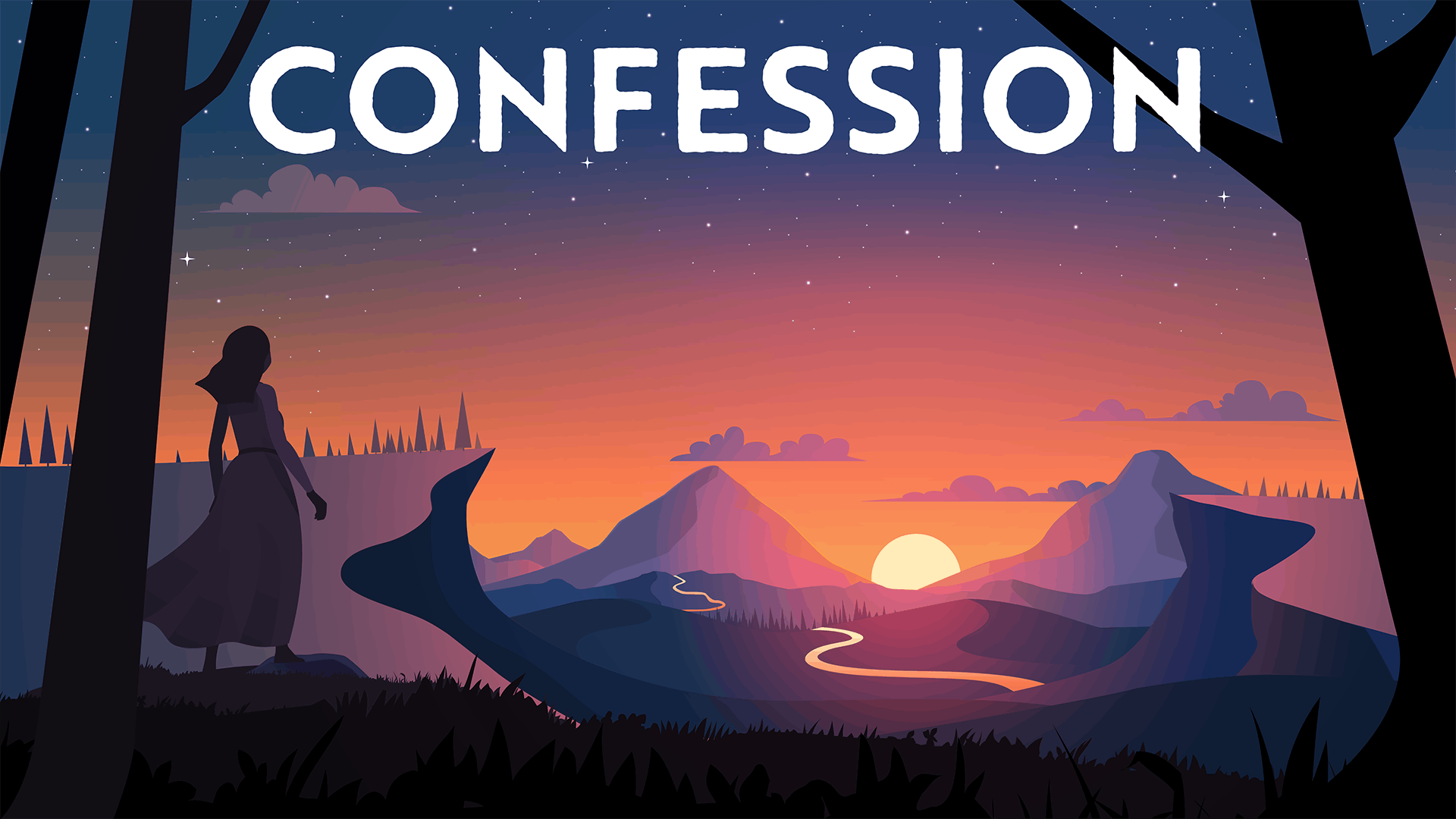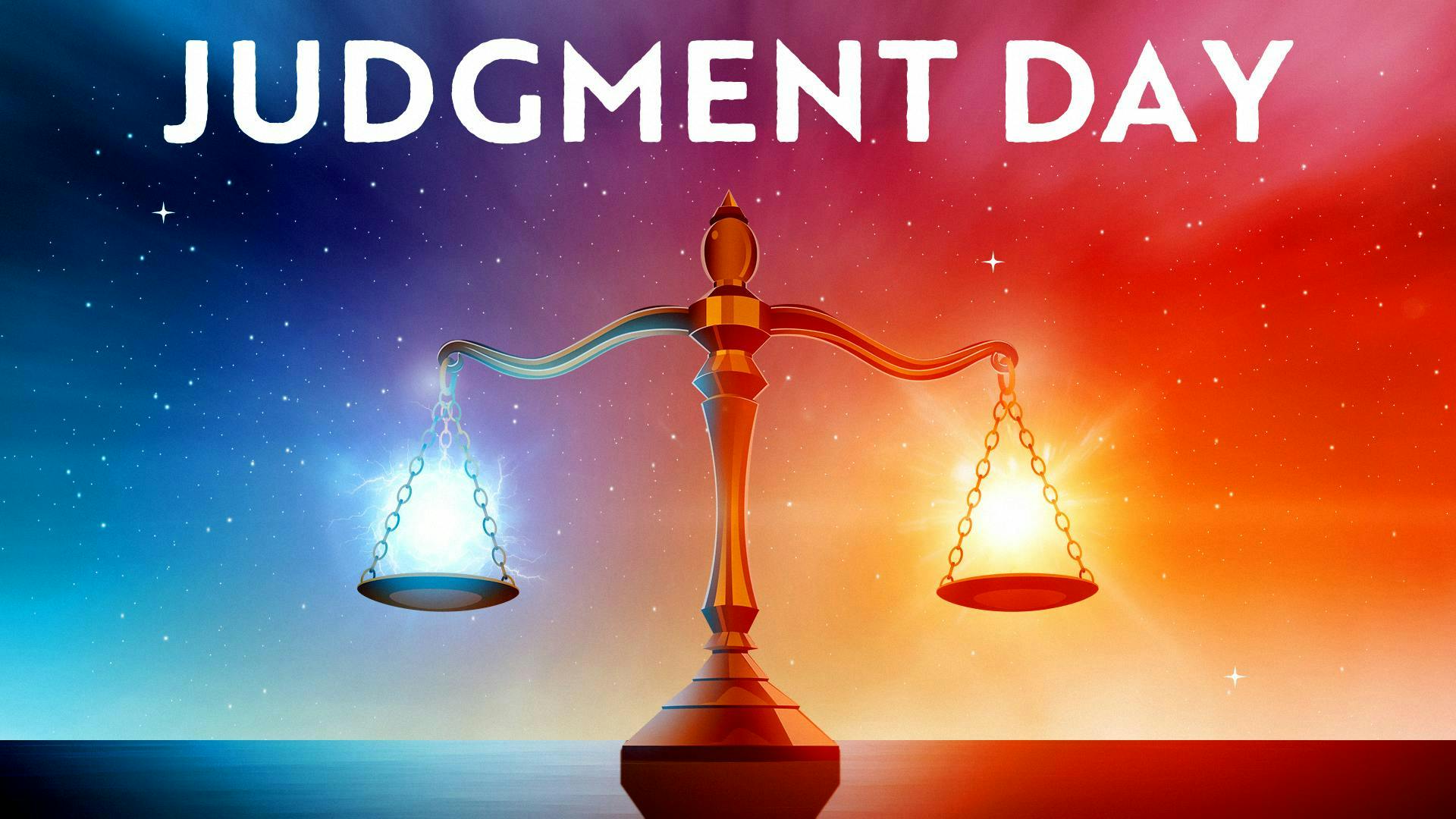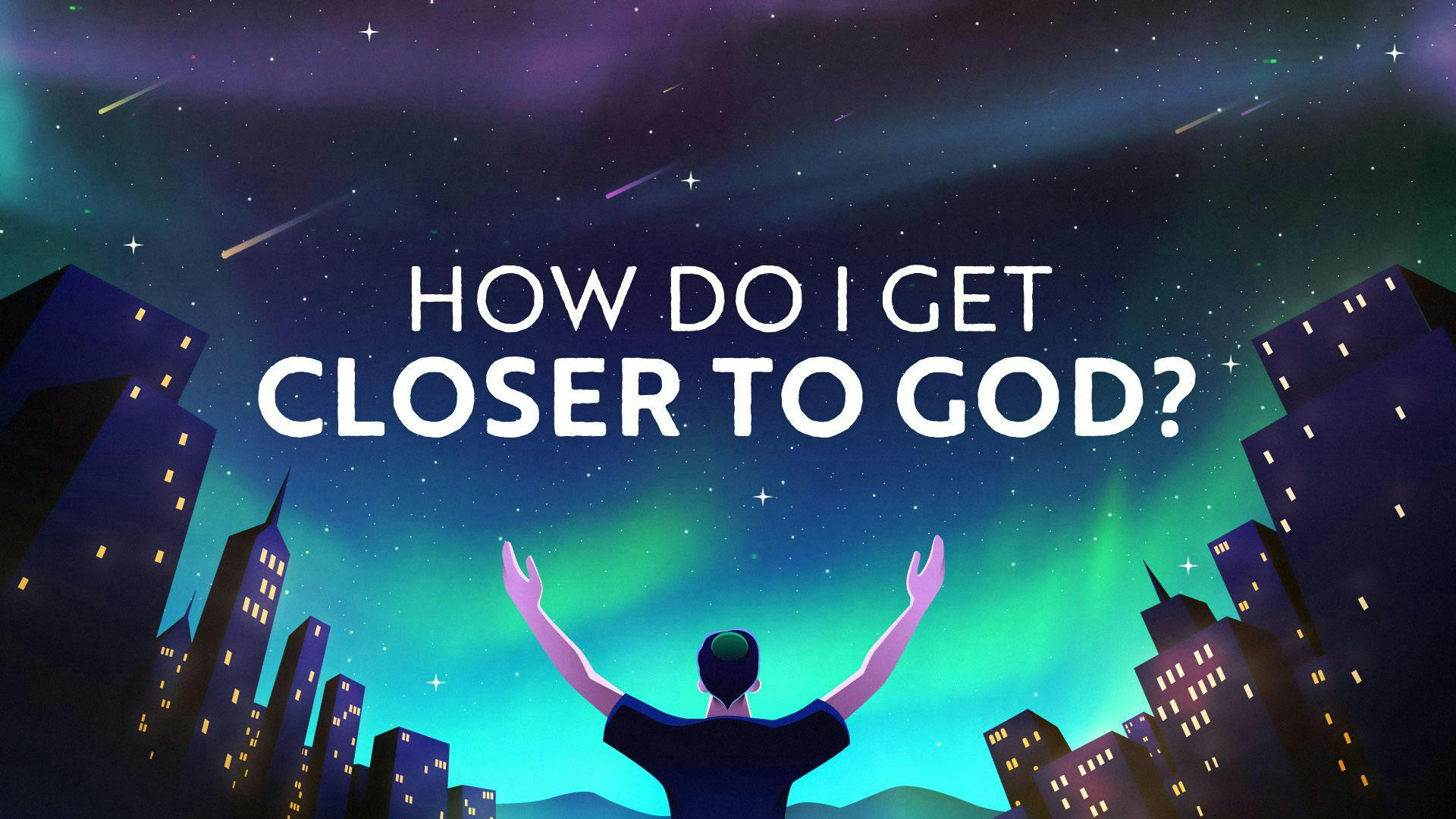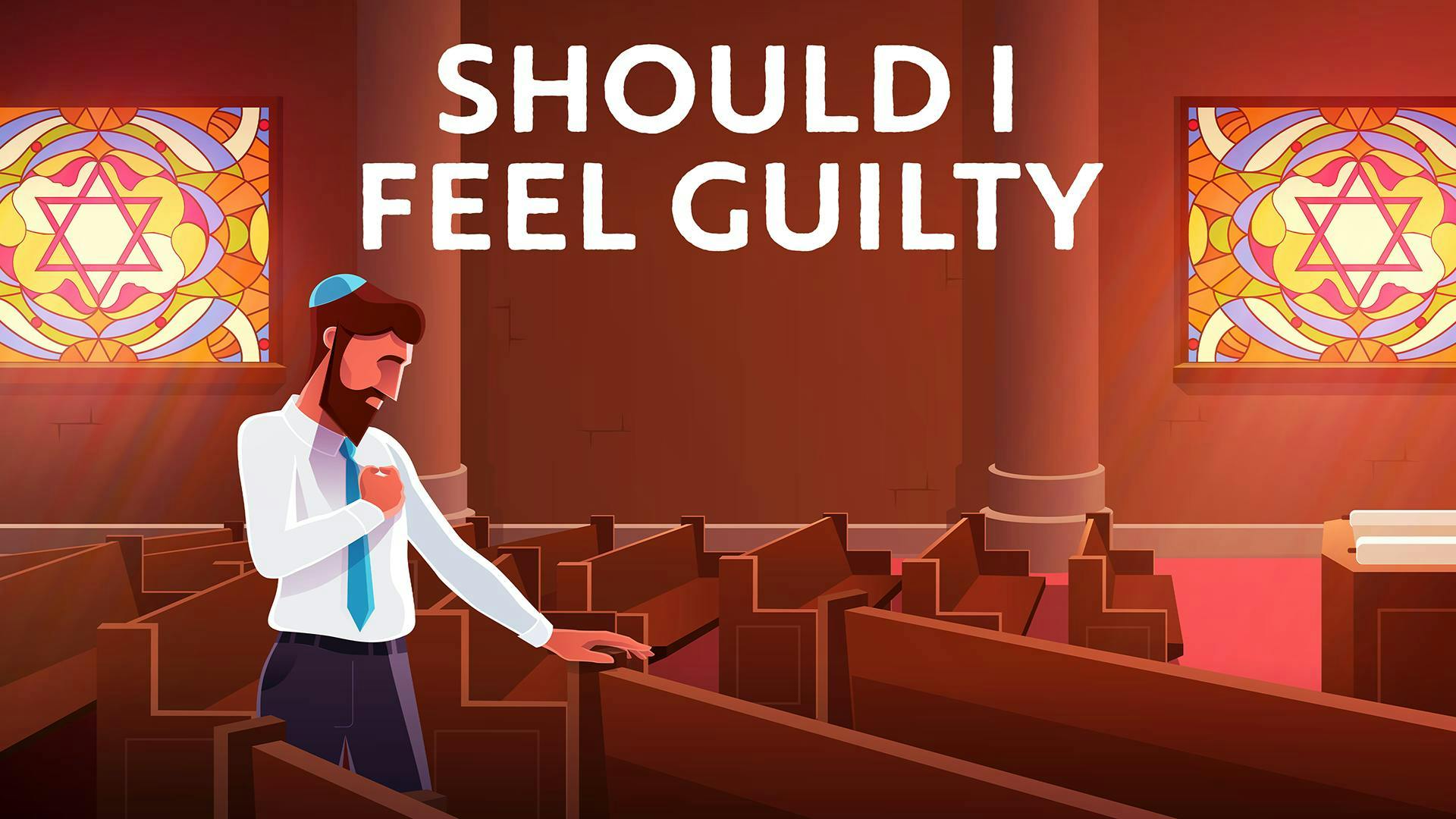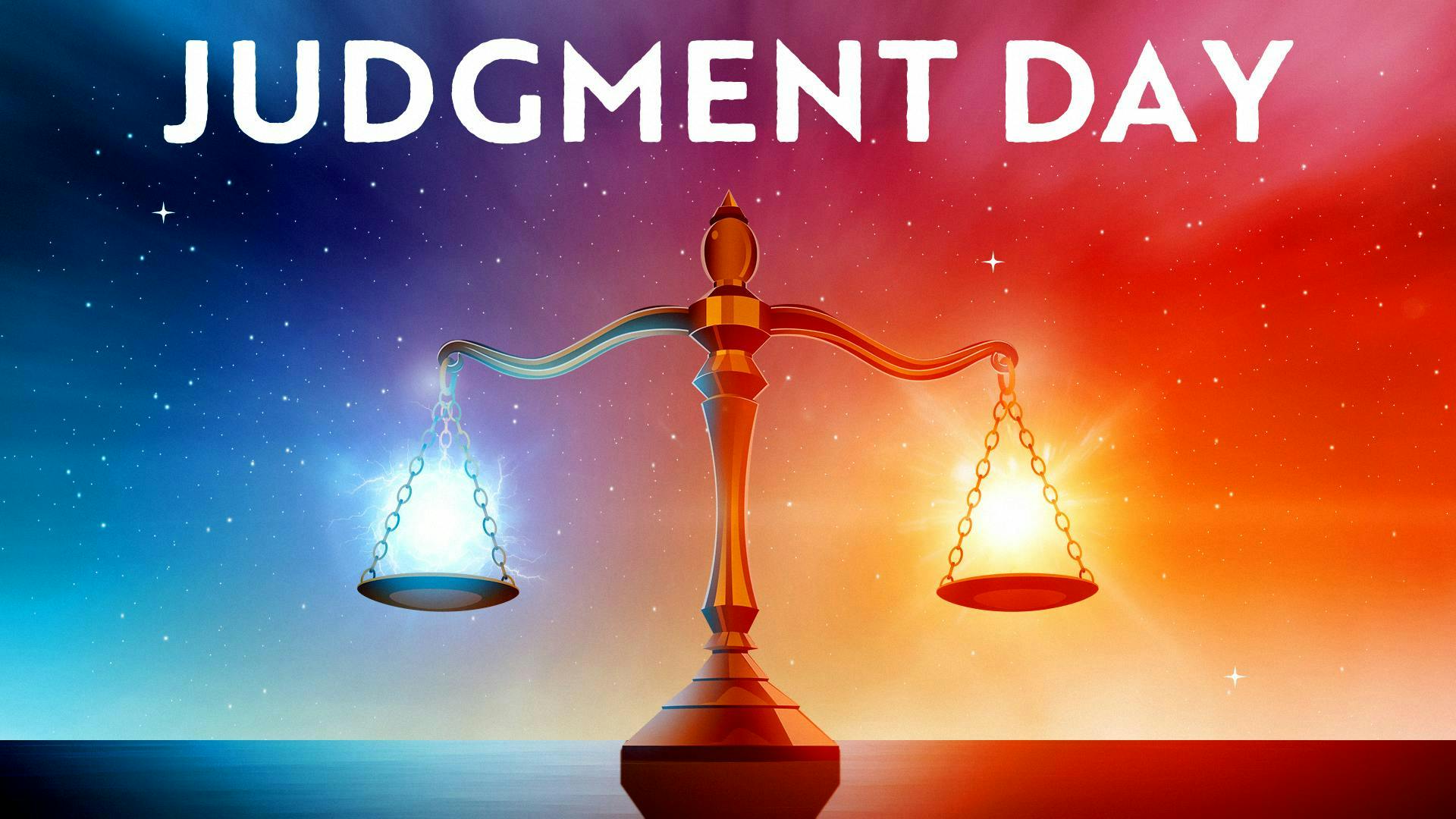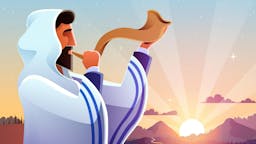Rosh Hashanah: Day of Judgment or Day of Celebration?
Mount Sinai and the Essence of the Jewish New Year
By Susannah Schild | 6 August 2024 | 5 Minute Read
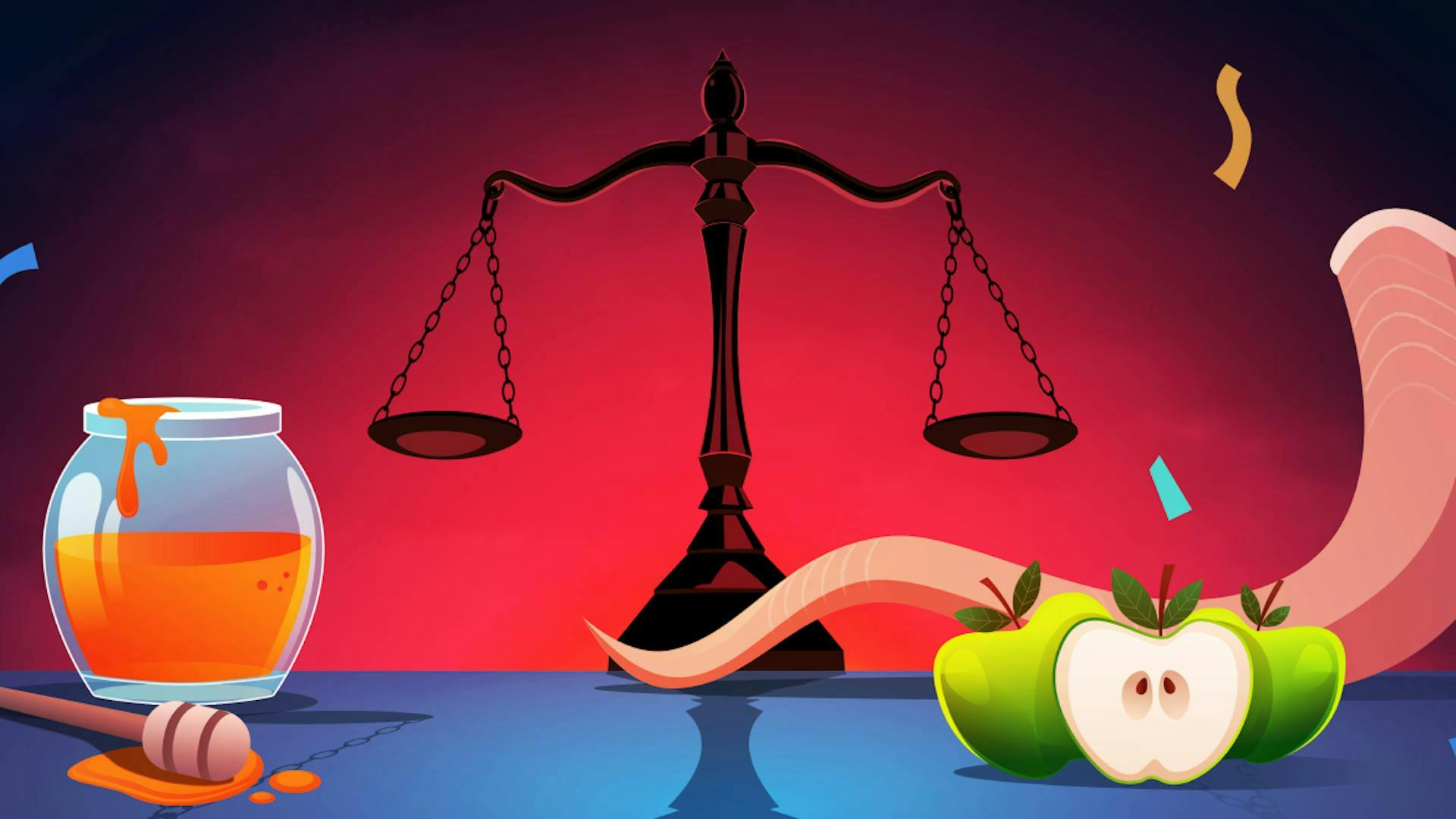
Looking for more?
We have hours of delightful videos and podcasts to enhance your Yamim Noraim experience.
Making Sense of the First Days of Tishrei
Every year in Elul as the High Holidays approach, we feel a mixture of joy and trepidation. The joy comes from the fact that Rosh Hashanah is, after all, a holiday. On the Jewish New Year, we mark the day with apples dipped in honey and sweet delicacies like pomegranate glazed chicken, stuffed cabbage, and carrot cake. Seasonal change is in the air. In our fine and festive clothing, Rosh Hashanah feels like a new beginning, a chance to celebrate our hopes and dreams for the coming year.
At the same time, many of us feel dread as Elul winds down and the first day of Tishrei approaches. Although it is a holiday, Rosh Hashanah is also known as the Day of Judgment. In Jewish tradition, the Jewish New Year is a time to take stock of our lives and see how we measure up before God. Much of the holiday is spent in synagogue. There, we try to focus intently on a seemingly unending series of prayers.
We may wonder if we should be wasting time with celebratory holiday meals on the Day of Judgement. Isn’t the whole point of Rosh Hashanah to feel guilt and spark repentance in advance of Yom Kippur? How does feasting and celebration fit into this picture of the Jewish New Year?
What Does the Torah Have to Say About Rosh Hashanah?
It may come as a surprise to some that there’s no reference to Rosh Hashanah as a day of judgment in the Torah at all. In Numbers (Bamidbar), the Jewish New Year is described as Yom Zichron Teruah, a day of remembrance of the call of the shofar.
The first Rosh Hashanah celebration in Scriptures takes place in the book of Nehemiah. The setting is Israel after the Babylonian exile; a rag-tag group of Jews have returned to the Holy Land to rebuild the Temple.
Despite their idealism, these Jews could hardly have been called religious. Many of them were intermarried. From the words of the text, it seems that they were completely unfamiliar with the Torah. On the first day of Tishrei, Nehemiah read the Torah aloud to the people, and they began to weep. Why? Rashi explains that it was because their behavior was so out of line with the Torah commandments. They felt guilt and shame.
In response to their tears, Nehemiah advised the people not to weep, because the day is holy to God. He instructs them to, “Go eat choice food and sweet drinks, and send food to whoever has nothing prepared, for the day is holy to our Lord. Do not be sad, for your rejoicing in the Lord is the source of your strength.”
So Where Does the Idea of Judgment Day Come From?
There’s no biblical reference to Rosh Hashanah as a day of judgment, but that concept does have a source in our tradition. The name Yom HaDin, Day of Judgment, comes from the Mishnah. There, Rosh Hashanah is described as a day when “all of the inhabitants of the earth pass before God like a flock of sheep.”
From the Mishnah, we get a sense that God is appraising each of us on this solemn day, assessing us one by one like sheep in a flock. He knows our deeds and actions, and He analyzes them closely.
When the Talmud elaborates on this day of judgment, part of the discussion is about the prayers for Rosh Hashanah, and the three major themes they are comprised of:
- Malchiyot – verses that talk about God’s kingship,
- Zichronot – verses that describe fond memories that God has of the Jewish people, and,
- Shofarot – verses that talk about the Shofar.
It’s unclear what any of these ideas has to do with judgment.
If we’re being assessed on Rosh Hashanah, shouldn’t our prayers be full of repentance, of begging for forgiveness for our many sins? In fact, none of the prayers on the Jewish New Year have anything to do with asking for forgiveness. So, what is this holiday really all about?
Maybe the Shofar is the Answer?
Maybe a better way to approach the holiday would be to understand one of its most significant symbolic acts: the blowing of the shofar.
There is, perhaps, no more quintessential commandment on the holiday of Rosh Hashanah than listening to the shofar. Both women and men are required to hear the shofar blasts. As mentioned earlier, the Torah actually refers to the holiday as Yom Zichron Teruah – the Day of Remembering the Shofar Blasts.
But which shofar blasts are we remembering? The shofar was used as a symbolic sound to accompany many events throughout the Torah. But the very first time the sound of the shofar was heard was at Mount Sinai, when the Torah was given to the Jewish people.
During that event, the Jewish People were enveloped in darkness. As described in Exodus, “There was thunder, and lightning, and a dense cloud upon the mountain, and a very loud blast of the shofar.” When the Torah was given, there was nothing to see: not God and not even the shofar. Instead, the Jews heard the sound of the shofar, in other words, the voice of God. This caused them to tremble with fear and recognition.
But how could the Jews recognize and remember the voice of God if this was their first time hearing it?
The First Time We Really Heard God
A while back in the Garden of Eden, Adam and Eve sinned by eating from the Tree of Knowledge of Good and Evil. The moment of man’s first sin may seem like nothing more than bad behavior. But it was, in essence, a way of denying the kingship of God, denying that God is the ultimate arbiter of good and evil. Not man.
After that, Adam and Eve heard the voice of God in the garden, and they hid from Him. When asked by God why they were hiding, Adam responded, “I heard Your voice in the garden, and I was afraid because I was naked, so I hid.”
He hid because he was naked, because he was confronted with his own humanness, his own imperfection.
When Adam heard God’s voice in the garden, he didn’t come out and admit his mistake, acknowledging the sovereignty of God. Instead of confessing his misdeeds before the divine King, man hid himself away. He cut himself off from the accountability and closeness between the ultimate ruler and his subjects.
For that sin, man was banished from the Garden of Eden, and the world was forever changed.
Recognizing the Sound of the Shofar as God’s Voice
Fast forward through the next several millennia. The people of the world continued to disregard God’s dominion over their actions. They acted as they saw fit, appointed their own kings, and made their own decisions about what was right and wrong. The Jews, as slaves in Egypt, experienced firsthand what this human domination looked like.
At Mount Sinai, when our nation of former slaves heard the call of the shofar, the voice of God, they had a moment of recognition. They remembered the voice from the Garden of Eden. They remembered that God is King, and that He is the divine arbiter of right and wrong.
This moment at Mount Sinai was like a second chance for the Jewish people. Each year on Rosh Hashanah, when we hear the sound of the shofar, it’s our opportunity to crown God as king all over again, to recognize that our story is His story. It’s our chance to judge the story of our own lives against the narrative arc of the divine plan.
So, What’s with Nehemiah?
The connection between the giving of the Torah at Mount Sinai and Rosh Hashanah can help us better understand that story in the book of Nehemiah. The imagery and wording in the Nehemiah story are parallel to that of the giving of the Torah at Mount Sinai. Nehemia’s reading of the Torah on Rosh Hashanah is the “modern day” equivalent of Mount Sinai. It serves as a reminder that even when things are imperfect, even when the nation is full of intermarriage or worse, we still have a chance to recognize the sovereignty of God. We are still part of the story of the Jewish people, part of the divine plan.
At the end of Nehemia’s reading of the Torah, the people wept. They were struck with fear and awe. They understood that they fell short of the mark. Nehemiah instructed them not to cry, but to go home and celebrate instead. Because “the Lord is the source of your strength.”
On Rosh Hashanah, when we hear the call of the shofar, we’re presented with the memory of that encounter with God at Mount Sinai. We’re reminded of the depth and importance of our relationship with the Creator.
That deep relationship is not cause for sadness. It is a cause for great celebration.
Rosh Hashanah: Mystery Solved
So, is Rosh Hashanah a Day of Judgment or a Day of Celebration? Well, the answer is: it’s both.
Faced with the reality of the ultimate sovereignty of God, Rosh Hashanah is a time for us to judge ourselves. It’s an opportunity to look at our own small lives and see how we stack up to the vision of what it means to be God fearing, Torah Jews. Being held accountable is a little bit frightening. But it also makes our lives profoundly meaningful.
We have a purpose. Our lives, seemingly small and insignificant, are all part of the divine plan. Each year, the call of the shofar reminds us that we have an opportunity to play an instrumental role in the purpose of creation. We can choose to live our lives in a way that propels the divine mission forward, in a way that deepens our everlasting relationship with the Creator.
Yom Zichron Teruah reminds us that our lives have meaning. According to modern standards for happiness like Maslow’s pyramid, self-actualization, otherwise defined as the desire to become everything that one can become, is man’s most lofty need. We get to experience this desire on Rosh Hashanah, the Jewish New Year.
If that’s not a cause for celebration, then what is?
(Much of the material in this article was taken from Rabbi Fohrman’s course, Rosh Hashanah: Day of Judgment or a Day of Joy? To take a much deeper look at the essence of the Rosh Hashanah holiday, make sure to check it out!)
Find Out More
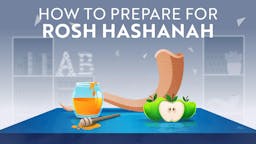
Spiritual Preparation For Rosh Hashanah
Video series • Part 1 of 10 • 3 min
A Guide For Rosh Hashanah
With just 5 minutes a day, you'll be ready to show up on Rosh Hashanah feeling prepared. We’ll talk about prayer, how to understand davening, why we blow the shofar, how to leave behind all the guilt of Rosh Hashanah, and why this holiday is absolutely worth celebrating.
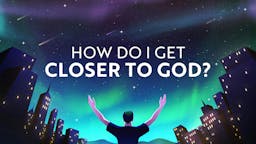
Struggling to Connect to God on the Days of Awe
Video series • Part 1 of 4 • 8 min
How can I attain closeness with a God who is so beyond my comprehension? And why would the Creator of the Universe care about my prayers? Is God even listening?
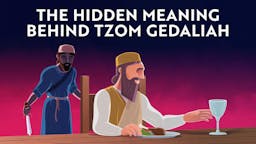
The History Of The Fast Of Gedaliah
Video • 19 min
Why does Gedaliah, a man who most of us have never heard about, get his own fast? And why is this fast day right after Rosh Hashanah? In this video, we dive into the story of Gedaliah. We discover that Tzom Gedaliah isn’t merely commemorating an ancient tragedy, but represents a major turning point in our nation’s history.
Rosh Hashanah Videos
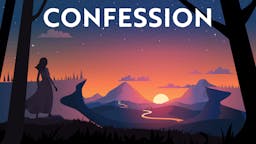
Teshuva: Is There a Wrong Way to Repent?
Video series • Part 1 of 4 • 8 min
Repentance is an emotional and deeply personal process — yet Judaism has specific laws that govern exactly how we’re supposed to do it. Can there really be a “wrong” way to repent?
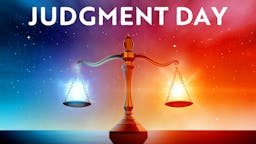
Rosh Hashanah: Day of Judgement or Day of Joy?
Video series • Part 1 of 6 • 13 min
We’re used to thinking of Rosh Hashanah as a time of trembling in fear before God. But what if we’ve been misunderstanding the essence of the holiday?

Struggling to Connect to God on the Days of Awe
Video series • Part 1 of 4 • 8 min
How can I attain closeness with a God who is so beyond my comprehension? And why would the Creator of the Universe care about my prayers? Is God even listening?

Spiritual Preparation For Rosh Hashanah
Video series • Part 1 of 10 • 3 min
A Guide For Rosh Hashanah
With just 5 minutes a day, you'll be ready to show up on Rosh Hashanah feeling prepared. We’ll talk about prayer, how to understand davening, why we blow the shofar, how to leave behind all the guilt of Rosh Hashanah, and why this holiday is absolutely worth celebrating.
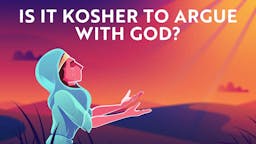
Is It Kosher To Argue With God?
Video series • Part 1 of 10 • 36 min
In Emor, we read about the Mekalel (the "Blasphemer"), the man who is punished for cursing God. Cursing God doesn't sound like a very religious thing to do, but it raises the question: Is it ever OK to speak against God? What about arguing with God? Find out in this audio series.
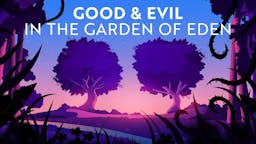
The Tree Of Life Vs The Tree Of Knowledge
Video series • Part 1 of 8 • 53 min
Knowing Good and Evil
What does it mean for us to recognize God as our King, Master of the universe? In this series, Rabbi Fohrman examines the early chapters of Genesis to discover just what God's mastery is all about – and what it really means to recognize it.
Discover other great Rosh Hashanah videos at Aleph Beta, including ‘How To Prepare For Rosh Hashana”, “How To Do Teshuva”. and “Akeidah: The Story Of Abraham & Isaac”
What is Aleph Beta?
Aleph Beta is a unique kind of Torah library. Led by our founder, Rabbi David Fohrman, we are dedicated to high-level, textual Torah learning for adults that is intellectually and spiritually sophisticated, that enlivens your Jewish practice and helps you forge a deeper connection to God. Whether you’ve been learning in yeshiva for years or you’re just beginning your Torah journey, you’re sure to find something meaningful and surprising waiting for you here.
Browse our library of over 1,000 beautifully produced animated videos, podcasts, deep dive courses, and printable guides. Topics include the weekly parsha, Jewish holidays & fast days, laws & mitzvot, prayers, relationships, big philosophical ideas and more. Have something to say at the Shabbos table that will amaze your family and guests and bring deep meaning into their lives.
